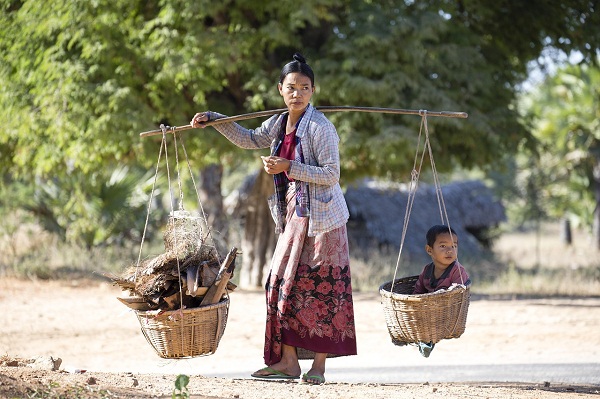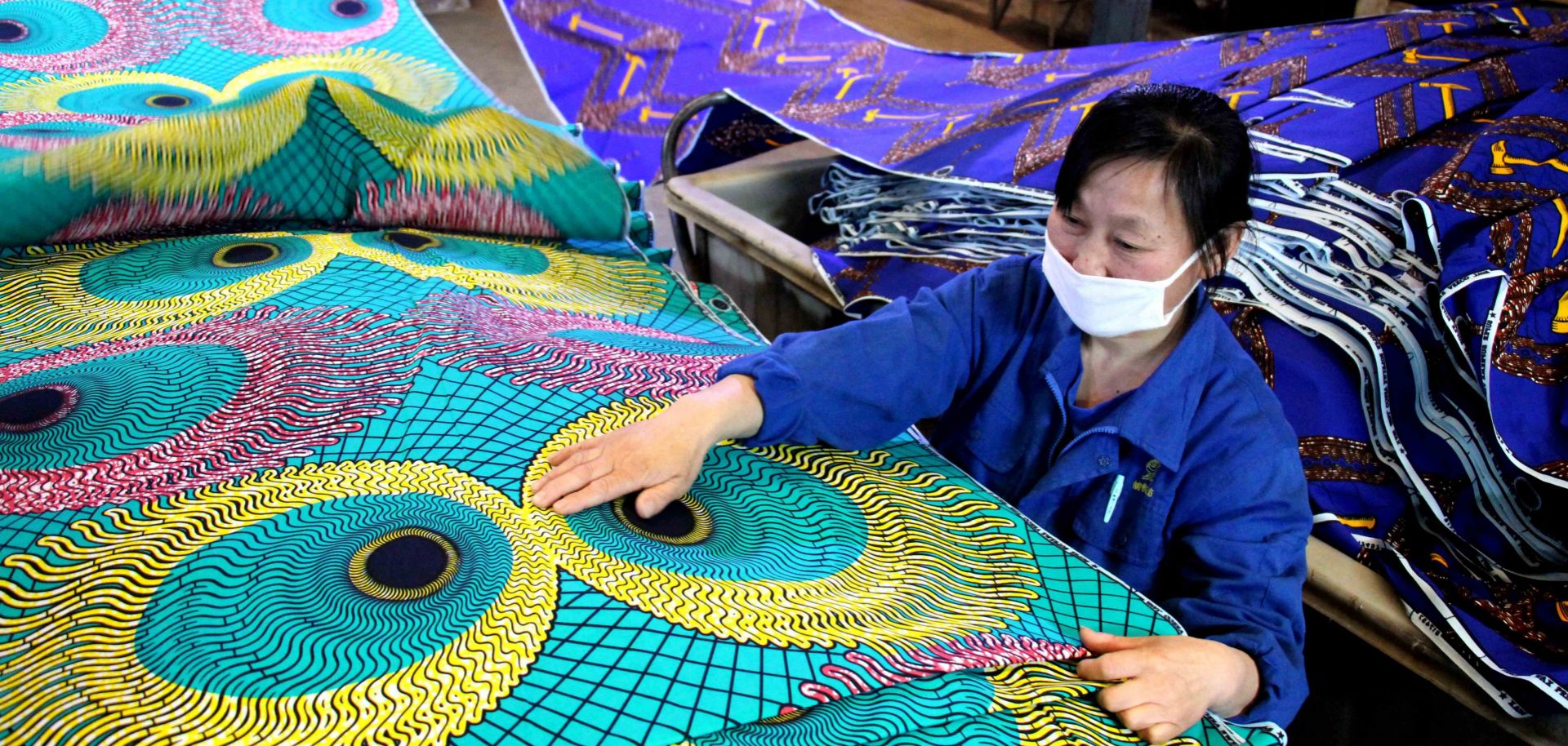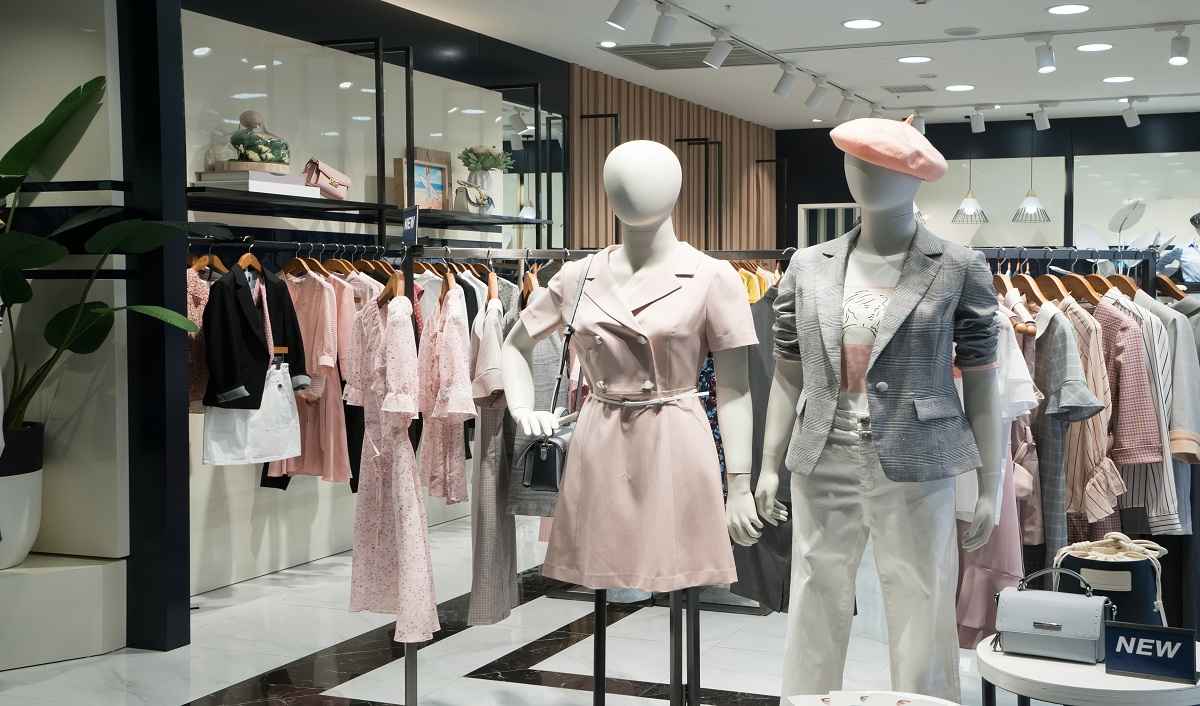Paul Smith has decided to leave the Russian market. So the British brand will close its two stores in the country which were operated by a franchise partner.
In February 2022, on learning of Russia’s invasion of Ukraine, many brands took to cutting ties with suppliers and franchises in the region, or closing up shop altogether, in response.
UK fashion retailer Paul Smith has 130 stores in 70 countries and celebrated 50 years of independent design in 2020. Paul Smith is Britain’s leading independent design company. This is a British company with a global outlook.
Paul Smith champions positivity, curiosity and creativity. These qualities underpin every Paul Smith design, whether it’s a shirt, a shop or a special collaboration. Since Paul Smith products are crafted with fifty years of design knowhow, this experience informs everything it makes, from refined yet relaxed tailoring for men and women through to casual trainers, formal shoes and Paul Smith Junior pieces for young customers.
Days after the war began, Inditex decided to close its 502 shops in Russia, its second largest market after Spain, with more than 9,000 employees, and to suspend online sales in the country as a result of the Russian invasion of Ukraine.

In the eye of an economic debacle that saw the implosion of the country’s stability, the apparel sector in Sri Lanka held its ground, closing the year 2022 with a 22 per cent growth in exports compared to the disastrous scenario in 2021. However, as expected, local sales have been low and retailers and manufacturers are seeing inventory stock piling. As per the country’s Joint Apparel Association Forum (JAAF), the first half of 2023 will be subdued as a controversy over the government’s plans of withdrawal of Gazette No 2041/10 of Licensing of Shipping Agents Act that protects importers and exporters from anti-competitive practices. JAAF is against this withdrawal and dissuading the government from going forward with the plan. Meanwhile the apparel segment revenue is projected to reach $424.50 million in 2023 and with an annual growth 15.30 per cent between 2023 and 2027. This will result in a projected market volume of $750.20 million by 2027.
Need to protect the sector
The government should not be influenced by a select few service providers who enjoy good relationship with the present authorities and not withdraw any market-friendly legislation that protects the apparel exporters’ interests in these fragile economic times, opine experts. In the long run, such random decisions would cause severe damage to the apparel sector.
The withdrawal of Gazette Notification No 2041/10 dated 17th October 2017 will result in the Minister of Ports abandoning his regulatory duties, such as protecting free-market competition and axing the cardinal principles of shipping where no price fixing is permitted; leading to increased costs of imports and adding to inflationary pressures. Additionally, Ministers should not have the power to punitively fix charges on transactions between private parties. The Minister must be an impartial regulator to protect the weaker party in the absence of equal bargaining power. Instead, the government has been advised to seek out as many FTAs as possible in the quickest manner.
Experts feel the only way to stay afloat is to ensure penetrating high-value markets with FTAs. The government has also been advised to help keep manufacturing costs down through incentives so Sri Lanka can continue to be competitive. For this reason, experts have advised the removal of bureaucratic red-tapeism and ease methods of doing business.
JAAF is rightfully concerned about the withdrawal of legislations that were a safety net for apparel exporters. They have raised concerns over apparent plans to end a regulation on shipping fees which they say protected them from wrongful charges from service providers. The original regulation was issued on the basis that the cost of carriage of containers from origin to destination must be identified as all-inclusive freight without dividing them into land costs and freight components, the service provider can only recover costs incurred from the use of the service to whom the service was provided, and not from a third party, with no such contractual liability and goods that landed at port could only indicate ‘Freight Pre-Paid’ or ‘Freight Collect’.
An increase in fabric imports from India
Meanwhile, the island nation saw an increase in fabric imports from India. While it may be attributed to the nation being grateful to India for its timely support during the worst days of the economic crisis, import of Indian fabrics increased almost 50 per cent. Sri Lanka’s fabric imports from India increased to $565.848 million in 2021 from $374.214 million in 2017, reveals a market study. Fabric imports from China to Sri Lanka were at $888.772 million in 2017 which increased to $897.101 million in 2021. In the first 11 months of 2022, Sri Lanka’s fabric imports stood at $2 .141 billion. China and India were the top suppliers with total contribution of more than 64 per cent. China’s import share was 38.73 per cent, while India’s share was 26.01 per cent of the total.

Global human rights organization are keeping a hawk’s eye on Myanmar as 1st February marks two years of military's takeover and the beginning of a nationwide state of emergency. The subsequent social and political turmoil has hampered the economy and stifled it almost completely. Social abuses are far-ranging from inhumane working conditions in factories, wage theft and violence leading to arbitrary arrest and killings.
During this bifurcating economy where on one hand, livelihoods of ordinary people are being badly affected but on the other, a few sectors, such as the garment industry, is moving toward some level of economic recovery. This is seen in the export records of garment products from January to September 2022 to the European Union, Japan US which was $3.3 billion or 1.6 times more than the same period a year earlier.
Companies continue operations
Although the Western governments have imposed sanctions on military-related companies, there are no legal restrictions for Western companies on dealing with partners in Myanmar. Thus the door to business is still ajar to many global apparel brands including H&M, Adidas and Uniqlo to continue ordering products from subcontractors in Myanmar. Companies in other sectors such as Unilever and Toyota Motor are continuing operations in Myanmar and giving a livelihood to factory workers and lower income categories.
According to the World Bank Economic Monitor, in 2022 the percentage of people living below the national poverty line in Myanmar reached 40 per cent, doubling from 20 per cent in 2019, due to the pandemic and military takeover. Weak economic activity is indicative of the range of constraints facing the Myanmar economy.
“Despite severe constraints, economic activity has picked up in some areas, demonstrating the adaptability of Myanmar’s businesses. However, industries more dependent on domestic demand are facing challenges from lower household incomes and rising prices, while agricultural production remains constrained by increased input prices, transport disruptions, and ongoing conflict,” says Kim Edwards, World Bank Senior Economist for Myanmar.
Many look for responsible exit
However, according to the United Nations Comtrade database, around 126 countries imported goods from Myanmar in 2021 which was slightly lower than 134 countries in 2020. Despite this, the total value of the countries' imports saw 7 per cent growth to nearly $21 billion, which shows the country’s exports in the first year of military control expanded sizeably despite international sanctions.
Experts feel it is time for Myanmar to closely cooperate with neighbours such as China, India, Thailand, Laos and Bangladesh to export its products. China had led the export boost as the largest customer for Naypyitaw, with purchases worth over $8 billion in 2021which was a 25 per cent increase from the previous year.
Given the ongoing political turmoil, many big retailers including M&S and Primark have taken steps to stop sourcing from Myanmar and are speaking to the fashion industry and garment workers' rights organizations about a responsible exit. Large UK retailers and other international retailers taking social responsibility and making a Modern Slavery Act submission and many others are expected to follow in the planned exit footsteps in the aftermath of the military coup. As the country faces a political and economic storm, apparel brands sourcing from the country currently remain confused about what the ‘Made in Myanmar” tag may hold for them from the global perspective.
The Joint Apparel Association Forum (JAAF), the leading body for Sri Lanka's apparel industry, recently held its 19th Annual General Meeting, where industry veteran Sharad Amalean was re-appointed as Chairman. The Executive Committee was also unanimously re-elected, including Saifudeen Jafferjee and Felix Fernando as Deputy Chairmen.
In his Chairman's address, Amalean emphasized the importance of bringing in new, young leaders to drive the industry beyond 2025. He noted that JAAF's credibility has helped the industry work closely with the government and relevant authorities, contributing to a favorable business environment. Despite challenges faced in 2022, the textile and apparel sector recorded a turnover of LKR 5.5 billion.
Aroon Hirdaramani, past Chairman of the Sri Lanka Apparel Exporters Association, warned that 2023 will be a challenging year, with luxury brands expected to perform better than others. JAAF Secretary General Yohan Lawrence highlighted vital policy priorities and expressed concern over Sri Lanka's declining market share in the face of growing competition from Bangladesh.
JAAF is pushing for relaxation on rules of origin for the EU's GSP+ and UK's DCTS schemes. The AGM was also attended by JAAF's constituent associations, who thanked JAAF for its leadership during trying times and urged authorities to reassess measures affecting the industry's competitiveness.
The export of textile waste and used clothing from the EU to countries such as Pakistan has increased due to fast fashion trends. In 2021, 46 million USD worth of used clothing was exported from the EU to Pakistan.
This lack of distinction between textile waste and second-hand clothing, along with the lack of regulations, has caused the rise of textile waste in landfills and an increase in GHG emissions and unsustainable water consumption.
The EU is now promoting textile circularity and regulating the export of textile waste. Pakistan has a large resale market for secondhand clothing and has the potential for recycling and redesigning used textiles. The introduction of recycling plants for recycled Polyester Staple Fiber (rPSF) has the potential to uplift the industry.
The EU's strategy for sustainable and circular textiles will greatly transform the textile production patterns in Pakistan and drive fast fashion out of fashion. The EU's strategy requires the industry to adopt resource-efficient processes and circular business models, with a focus on eco-design and recycling of used textiles. This will require skilled labor, efficient policies, and technical progress for recycling and treatment of used clothes.
The EU's stricter regulations will require tracking the origin of all textiles, and mandatory requirements for the second life of used textiles. The shift towards recycled secondhand textile products will ultimately help decouple textile waste generation from growth.
Karl Mayer, a textile technology specialist, has introduced a new lace called Symm-Net, which is characterized by an extremely precise and intricate appearance. The lace is made using a new multibar jacquard raschel machine, equipped with a split threaded jacquard bar and two ground bars, allowing for equal and counter-lapped patterns.
The Symm-Net lace is made using typical Chantilly yarns, including polyamide and 15% cotton, and is designed as a cross-band flounce on the MJ 92/1 B machine.
Lace expert Jamie Heather has used Symm-Net to create a rigid cross-band galloon for outerwear, relying on a delicate Chantilly-style design. He believes that Symm-Net's strength lies in its symmetry, which is particularly evident in designs with small holes and fine mesh structures. The new rigid Symm-Net patterns have received positive attention and Jamie Heather is already working on further developments, including several clip patterns.
Karl Mayer's Symm-Net lace brings clarity and balance to clothing, and is ideal for adding pizzazz to collars, cuffs, and inserts. The lace's visual clarity and fine mesh structures have been a hit with customers, making Symm-Net a must-have for the latest fashion trends.
EGO, a new ozone finishing system under the Tonello brand, offers simple and efficient garment treatment processes.
With its innovative features, it reduces water consumption by 80% and simplifies wastewater purification operations. This new technology is characterized by its ease of use, maintenance, and improved ozone generation system with a capacity of up to 3000 g/h.
EGO encompasses three different technologies for maximum flexibility and a wide range of aesthetic solutions. It is a strategic component in Tonello's "All-in-One System" and reflects their philosophy of constant optimization and responsible garment washing and finishing processes.
EGO is applied to Tonello washing machines, allowing for garment neutralizing without risk to the operator and with no loss of time.
The demand for intimate wash care products is projected to grow at a compound annual growth rate (CAGR) of 9.3% between 2022 and 2032, reaching a total of around US$7,922.4 million by 2032, says a study conducted by Future Market Insights.
This growth is driven by increasing awareness of the importance of health and hygiene in intimate areas, as well as government initiatives and health campaigns. Despite this growth, the market is faced with challenges such as the risk of allergies and other problems associated with intimate wash products.
North America is expected to be a leading market for intimate wash care products, with a market share of 17.4% in 2022, due to the growing demand for naturally formulated products. Europe is also a major market, with a share of 18.2% due to increasing disposable income and awareness of the risks of not maintaining intimate hygiene.
With about 20-50% of the women still using clothes and other substitute materials to manage intimate hygiene, to overcome these issues companies have scaled their capacity by introducing new products. Some of the leading players in the intimate wash care products market include Kao Corporation, Kimberly-Clark Corporation, Organic Glide Company, and others.
Companies have launched new products to meet consumer demand, such as Svish's line of products for men's intimate hygiene and Piramal Pharma's 'i-feel Gentle Intimate Wash', which is free of sulfates, paraben, and alcohol. Millennium Herbal Care has also launched GynoVash, a women's intimate wash brand that uses foam-based application for deep cleansing.
Premiere Vision will be held in Paris, France, February 7 to 9, 2023.
With the return of exhibitors from Japan, Korea and China, plus an uptick in pre-registrations by attendees from inside and outside Europe, the outlook for the fashion world’s largest sourcing marketplace is positive in every one of its segments, which span fibers, fabrics, leather, accessories, design and manufacturing.The overall increase in exhibitors is 25 percent compared to February 2022, with more than 100 newcomers this year. There will be more Japanese and Korean exhibitorsand more than 40 Chinese weavers.
New at the textile marketplace, a barometer of the global supply chain, is sourcing by geographical zone, a deadstock purchasing itinerary and a dedicated Smart Tech area.The latter aims at helping designers, labels and sustainability teams decipher the explosion of digital solutions, particularly in traceability, which is an impending legal requirement. The show has reorganized its zone navigation by geography.
This spring/summer 2024 event is being held in the context of high inflation and rising sourcing environmental challenges. Inflation, the energy shock and the ongoing war in Ukraine are impacting companies across the fashion sector, as manufacturers grapple with rising operational costs. While luxury is resisting the slowdown, the entry-to-mid market is fragile.
Pakistan’s textile sector exports fell by 12 per cent in January 2023 in comparison to the same month of the previous year.
The country’s textile exports in the first seven months of fiscal year 2023 decreased by eight per cent. The decline in textile exports is concerning for the South Asian economy, which is already facing depleting foreign exchange reserves.
The textile sector, the single largest manufacturing sector of Pakistan, is confronted with numerous challenges. The worsening international economic situation primarily caused by the Ukraine crisis combined with floods in Pakistan has negatively impacted the already inefficient supply chains of the country. Flooding in dozens of districts of Pakistan has destroyed a wide swath of agricultural land.
While the industry requires 14 million bales of cotton, the country could only produce five million bales domestically.To meet this gap cotton needs to be imported. However forex issues in the economy have curtailed imports of cotton and other essential inputs for exports. The issue of raw material clearance from the ports remains unresolved owing to unavailability of forex and therefore mills are currently unable to obtain cash against documentation and are closing down owing to the shortage of raw materials.
- 1
- 2
- 3
- 4
- 5
- 6
- 7
- 8
- 9
- 10
China's Luxury Crossroads: Consolidation or retreat for global giants?
For years, China has been the undisputed El Dorado for global fashion and luxury brands. A growing middle class, with... Read more
Fashion for Good and Arvind unveil Future Forward Factories in India to cut text…
Fashion for Good and Arvind Limited have launched the Future Forward Factories India initiative, a major push to reshape the... Read more
The Scope 3 Challenge: Unpacking the elephant in the emissions room
In the escalating global focus on combating climate change, businesses are under pressure to account for their carbon footprint. While... Read more
Right Size, Right Impact: Personalized fit weaving a sustainable future for fash…
With growing environmental consciousness, the fashion industry, long criticized for its detrimental impact, is looking for new and innovative ways... Read more
From Runway to Retail Shelf: Why fashion needs a dose of FMCG discipline
The fashion industry, often lauded for its artistry and emotional appeal, stands at an intriguing crossroads. While it captivates with... Read more
Global Sourcing Expo spotlights Australia's sustainable fashion growth amid supp…
Australia's demand for sustainable fashion is reaching new heights, driven by increasing consumer awareness and a rising wave of conscious... Read more
Shein’s climate targets validated by SBTi, but doubts persists about green crede…
Fast fashion major Shein has announced a major milestone in its sustainability journey, with its climate targets officially validated by... Read more
Global apparel industry a mixed bag of growth and caution in 2025: Wazir Advisor…
The global apparel industry has entered the second quarter of 2025 with renewed momentum, marked by strong import demand, shifting... Read more
From price tags to political peril, geopolitics redefines the sourcing game
The racks of fast fashion outlets and the digital storefronts showcasing the latest apparel trends mask a change occurring behind... Read more
Tokyo Textile Scope concludes successfully, marks a new era for Japan’s textile …
New venue and format signal fresh start for Japan’s textile industry The inaugural edition of Tokyo Textile Scope (TTS), organised by... Read more












